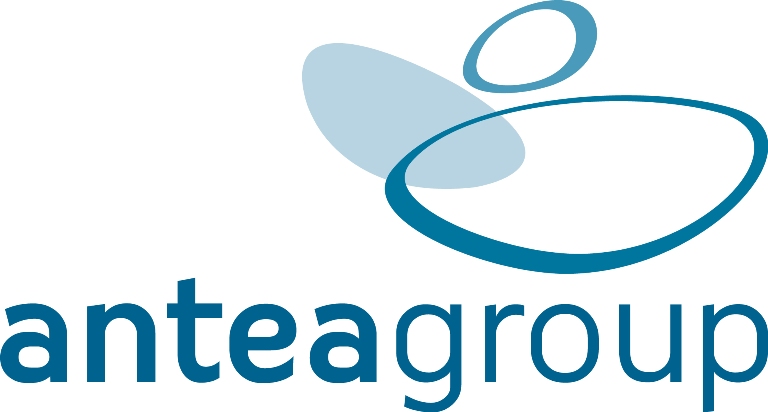How EHS&S Can Partner With Marketing for an Authentic Brand Sustainability Message

How EHS&S Can Partner with Marketing for an Authentic Brand Sustainability Mess…
Sustainability has become a powerful driver of global purchasing in both the B2B and B2C markets.
If your organization is investing in environmental, health, safety, and sustainability (EHS&S) programs, and you aren’t telling the world about it, you could be missing out on gaining that sustainability-focused market share.
Benefits of Sustainability Marketing
The Global Sustainability Study 2022 revealed several significant insights into the impact sustainable business has on consumer behavior.
- 75% changed their purchasing habits to be more sustainable.
- 89% said they have shifted buying behaviors to be more sustainable over the past five years.
- 64% said they were motivated by a sense of responsibility to purchase more sustainable goods and services.
That last point is rather significant. Capturing a market share based on a broad social sense of responsibility is no simple task since a sense of responsibility is a value-based motivation.
Sustainability in B2B
There are benefits to embracing sustainability on the B2B side as well.
Georg Winkler of McKinsey explains how investors and boards are driving the shift to sustainability in B2B. “Our belief is that sustainability can be a source of durable competitive advantage, and the return on investment will come from profitable growth from new sustainable offerings.”
Since the environmental, social, governance (ESG) ratings used in the investment world are contingent on not only your business meeting sustainability requirements but also the sustainability of your supply chain, sustainable marketing can increase your visibility to both investors and those seeking more sustainable supply chain opportunities.
Partnering EHS and Marketing
For your sustainable marketing strategy to be a success, your marketing team needs to partner with experts who understand the environmental benefits of your organization’s sustainability programs. The EHS professionals who develop and maintain these programs are the greatest source of truth for this information.
Whether these EHS professionals are part of an in-house team or are from an outside service, the insights and knowledge they provide about your company’s sustainability work are invaluable to your marketers in helping them craft an accurate, authentic, and impactful message that resonates with the right people.
Keys to Effective Sustainability Marketing
Sustainability marketing fits perfectly under the umbrella of brand awareness.
A brand awareness campaign cements your organization in the minds of people who may not yet be in the market for what you offer, but could one day find themselves looking for your product or service. You want to be the brand that is top of mind at that moment.
These key points will help your EHS and marketing teams collaborate on the development of an effective sustainability-focused brand awareness campaign.
Align with stakeholder priorities
When it comes to communicating with your stakeholders, it’s important to speak to their needs. Your investors, customers, employees, and community will each have their own priorities when it comes to their interest in your organization’s sustainability.
EHS professionals can call out actions your organization is taking that serve each of these unique groups.
To keep these stakeholders engaged, your messaging should be resonant, consistent, and authentic.
Be true to your brand’s values
Your brand’s values should be a driving force in your sustainability marketing. Again, this circles back to the authenticity of your messaging.
This requires an examination of the alignment between your publicly stated values and your company’s real-world actions in the realm of EHS.
If you have positioned your organization as a steward of the community, highlight sustainability projects that have a net positive impact on your workforce and surrounding communities.
Be specific
The public is inundated with enough advertising that sweeping, feel-good sustainability messaging won’t rise above background noise.
To truly engage your target audience, your messaging needs to focus on timely, specific sustainability projects. The professionals in charge of your EHS program are the perfect resource for knowing what is happening across all divisions and locations.
However, try to avoid getting too deep into the weeds. Your content should still be largely about how your organization’s sustainability work improves the lives of your target audience – but be sure to include some hard numbers so they know real work is happening.
Be genuine
Your messaging needs to come from a place of genuine celebration of your company’s sustainability work. The worst thing you could do is exaggerate your accomplishments or (as noted above) speak in general terms about the value of sustainability.
Genuine sustainability marketing delivers factual, values-based content that tells your stakeholders how you are improving outcomes for them. The EHS professionals who are seeing these sustainability projects through are the best resource for identifying genuine successes that your marketing team can amplify.
Greenwashing in Brand Marketing
There is a growing public perception that some organizations are engaging in what has been termed “greenwashing.”
Greenwashing encompasses several unsavory marketing practices by organizations hoping to cash in on public demand for sustainability. It can be as simple as overinflating the value of a practice that has little or no positive impact on the environment to outright fabrication.
One example of corporate greenwashing in recent years happened around the issue of plastic straws entering the waste stream.
Spurred on in large part by a viral video of a conservationist removing a plastic straw from the nose of a sea turtle, several major food and beverage chains took steps to eliminate plastic straws.
In reality, the solutions were either non-recyclable or harmful to the environment in other ways.
Like many instances of greenwashing, these missteps might have been well-intended, but public perception of the participating corporations was negatively affected.
The big takeaway: effective marketing for sustainability requires EHS&S guardrails.
How to avoid greenwashing
The best way to avoid greenwashing is to make real strides toward becoming a truly sustainable organization.
However, the appearance of greenwashing can arise for companies that are sincerely doing good work in the realm of sustainability. This is often due to marketing that highlights the trendy work rather than focusing on the impactful work.
This is where your EHS&S partnership can make a big difference.
- EHS&S pros can offer marketers a deeper understanding of which projects your organization is currently working on that will result in significant change.
- EHS&S can pulse-check the sustainability messaging strategy and “red flag” behaviors or terms that are perceived by the public as greenwashing.
- EHS&S should also be included in final approval of sustainability-focused marketing materials, to ensure their accuracy and authenticity.
With a strong bi-directional partnership with EHS&S, your marketing team can translate your organization’s best sustainability work into strong brand awareness campaigns.
Drive Business Growth by Partnering EHS and Marketing
Now is the time to realize the return on your sustainability work through targeted, authentic, and genuine marketing campaigns.
The link between what a company does and their impact on the environment is not always immediately apparent to the public, so getting this message out is a vital step toward positioning yourself as a sustainability leader in your industry.
The EHS professionals responsible for sustainability programs at your organization are central to driving growth through sustainable marketing.
Learn more about Antea Group’s Sustainability Consulting Services
About Antea Group
Antea®Group is an environment, health, safety, and sustainability consulting firm. By combining strategic thinking with technical expertise, we do more than effectively solve client challenges; we deliver sustainable results for a better future. We work in partnership with and advise many of the world’s most sustainable companies to address ESG-business challenges in a way that fits their pace and unique objectives. Our consultants equip organizations to better understand threats, capture opportunities and find their position of strength. Lastly, we maintain a global perspective on ESG issues through not only our work with multinational clients, but also through our sister organizations in Europe, Asia, and Latin America and as a founding member of the Inogen Alliance. Learn more at us.anteagroup.com.

